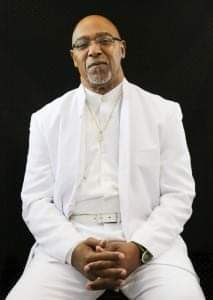Unveil Discover worlds of mystery, romance, and intrigue through the pen of Elder Duke Jones.
Critical Race Theory In Black And White
Critical Race Theory In Black And White: Understanding the Fight for Reparations and Justice
In Critical Race Theory In Black And White, readers delve into a powerful exploration of the fight for reparations, justice, and equality. This timely book traces the deep historical roots of reparations advocacy, beginning with Congressman John Conyers’ 1985 bill that sought to examine the feasibility of compensating the descendants of enslaved people. Year after year, the bill was reintroduced and rejected, symbolizing a painful cycle of unfulfilled promises.
Through thought-provoking insights and real stories, Critical Race Theory In Black And White illuminates how African American men are now determined to disrupt this cycle. With a demand for true accountability, they are calling for reparations to be a central issue in the 2028 Democratic platform. This book examines the rising resolve of Black men who, no longer content with symbolic gestures, have drawn a line in the sand, urging political leaders to take action.
Each chapter invites readers to reflect on the impact of systemic inequality, the significance of reparations, and the power of collective voice. With a blend of historical context, modern-day activism, and critical race analysis, the book challenges readers to consider the importance of reparations as a step toward justice and healing.
Critical Race Theory In Black And White is a call to action and a reminder that the pursuit of equality and reparations is not merely a political issue but a matter of dignity, honor, and lasting change. This book speaks to those ready to confront history and advocate for a future rooted in accountability and justice.

Critical Race Theory In Black And White
African American men are resolute in making reparations a key issue in the 2028 Democratic platform. Since 1985, when Congressman John Conyers first introduced a bill to explore reparations for descendants of enslaved people, this proposal has been repeatedly dismissed. Now, after nearly 40 years, the demand is clear: if Democrats want the Black vote in 2028, reparations must be a core commitment in their national platform. The time for symbolic gestures is over.
Available Books....

Author
Elder Duke Jones
Elder Henry Lee (Duke) Jones, once named Louisiana’s Best Baritone Vocalist and offered a scholarship to a top New York music academy, ultimately chose a path of ministry inspired by his grandfathers. After serving as a U.S. Air Force chaplain, he pastored churches across two states. His journey of self-discovery led him to numerous colleges, from Los Angeles City College to UCLA. Elder Jones has published two previous books, On The Right Side Of Wrong and One Last Thing Before I Go, and his commitment to activism only intensifies with his latest release.
I know my Redeemer liveth, that He shall stand at the later day upon this earth and though worms have eaten this body… yet with these eyes shall I see him.
